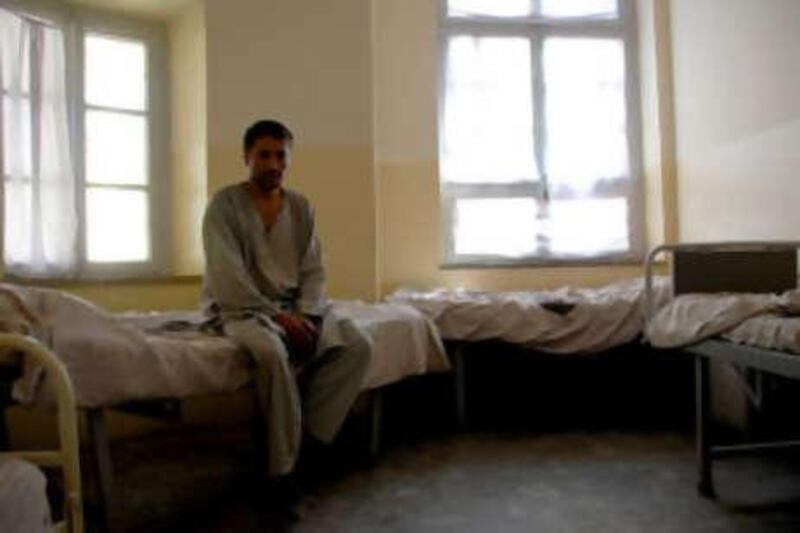KABUL // Massive budget constraints and years of neglect have left Afghanistan's health service struggling to cope with widespread mental illness among the population. Despite suffering more than three decades of war, there is still only one hospital in the entire country for psychiatric patients. This, combined with a lack of trained doctors and low educational awareness, has caused experts in the field to warn that action is badly needed. "The stress is not decreasing, how could it? We still have insecurity - we have rising insecurity - so there is no chance for it to decrease," said a foreign adviser who asked to remain anonymous. "This country will not recover, no way, and have a peaceful future until we address these issues because it's part of peace and reconciliation." Although psychiatric illnesses exist in any society, dire poverty and a seemingly endless series of brutal conflicts make Afghans particularly vulnerable. No exact data are available, but the World Health Organization (WHO) estimates that about 50 per cent to 60 per cent of the population has different "common mental disorders", including depression, anxiety and schizophrenia. This is rarely acknowledged, and it continues to be low on the list of priorities for the international community and a government with a myriad of crises to deal with. The foreign adviser, who has years of experience working in Afghanistan, said progress was being made but "certainly it's never enough". "The services are not sufficient yet and you can imagine if the father or the mother in the family has such a problem and is not recovering well because the stress is still there with insecurity, and with poverty and domestic violence, then we have a problem in the children, in the next generation," she said. She was not alone in voicing these concerns. Alia Ibrahim Zai, national mental health director at the ministry of public health, reeled off a number of alarming statistics. Afghanistan has only 19 psychiatrists. One of them has gone abroad and 17 of those remaining are not properly qualified. Meanwhile, there is just a single mental health hospital in the country. Outside of Kabul city, three provinces have a handful of beds available for patients with psychiatric illnesses. "Why? Because of war. Everything has been destroyed," Dr Zai said. According to her, less than one per cent of the ministry's total annual budget is allocated to mental health. Asked how much money that was, she replied: "I do not know." At the Psychiatric and Drug Dependency Treatment Hospital in Kabul, there are usually about 40 patients suffering from mental health problems that range from post-traumatic stress disorder to schizophrenia. Noor Mohammed first tried going to religious clerics and shrines in search of a cure for his son's sickness. Then, after a year of wondering what to do, he brought him to Kabul from their home in the south. "He would get angry, go to the local well and pour water over himself. Then he would go to bed and laugh until the morning or at night he would sometimes go outside and look at the stars," Mr Mohammed explained. "He was completely crazy so we used to tie him with chains in Kandahar. "When we decided to bring him to Kabul we cut the chains but bound his hands and feet together because he did not want to come." The public health ministry hopes cases like this will eventually be few and far between. It has already stopped people from being chained up in the hospital and it is trying to reduce the practice inside homes as well. There are also plans to have at least five beds made available for psychiatric patients in each of Afghanistan's provinces within two to four years. However, all those trying to help face a long struggle. The WHO's regular 2008-09 budget for mental health in Afghanistan is about US$250,000 (Dh920,000). Even if the country were no longer at war, it would be a minuscule amount. "Every day there are bombings and explosions. We can't control this problem," said Safiullah Nadeeb, national technical officer at the organisation. After pointing out that moves were in place to train 400 general practitioners in dealing with common mental health disorders by the end of next year, he was quick to add that huge obstacles remained. "Frankly, I will tell you there is little attention paid to mental health. From the WHO side, we have tried to do our best, but even for us it is a very big problem," Dr Nadeeb said. csands@thenational.ae
Mental woes afflict half of population
Massive budget constraints and years of neglect have left Afghanistan's health service struggling to cope with widespread mental illness.

More from the national




